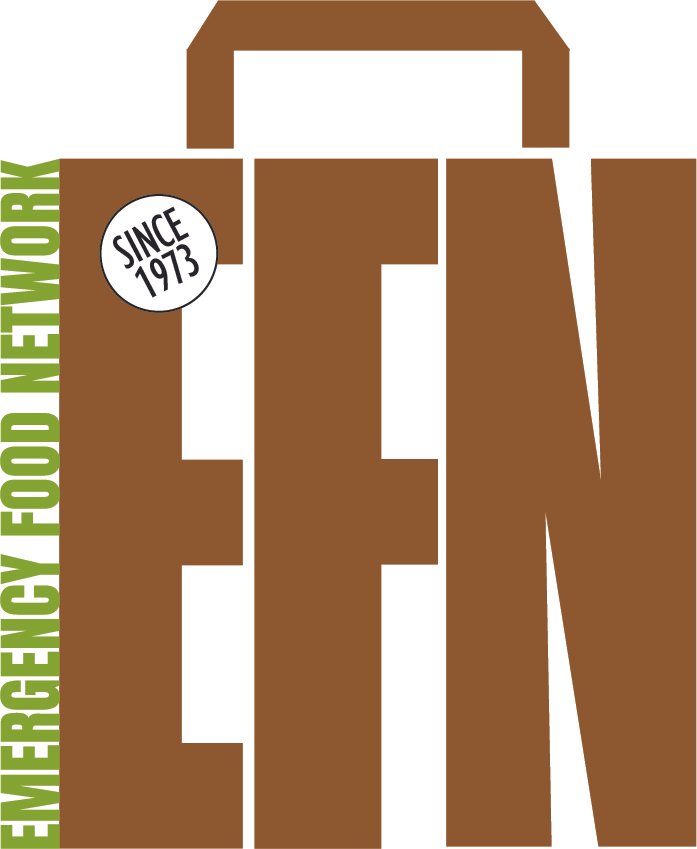
Our History
Enthusiastic volunteers originally established the Emergency Food Bank, a 501(c)(3) corporation, in March 1973. Now known as the Emergency Food Network, our core purpose has always been to provide food for three days of balanced meals for families in Charlottesville and Albemarle County. From our beginning, the EFN has been an all-volunteer organization, with no government or commercial support. This independence has allowed the EFN to provide assistance with no questions asked other than place of residence—no income limitations, no work or reference requirements. The food is either purchased with the funds given by our generous donors or acquired through food drives. Through the years Meadows Presbyterian Church, the Catholic Church of the Incarnation, and Christ Episcopal Church have given major support to the effort, providing rent-free storage,office space, and many volunteers.
In the early years, volunteers delivered emergency food supplies to the homes of those in need in Charlottesville or Albemarle. Because the travel time limited how many families could be served, the Board soon changed to the current pattern of having the volunteers deliver the orders to a distribution site where families could come to pick up their orders.
As the EFN grew through the years, services expanded from providing food to an individual client three times in a given year to the current structure of providing food once a month. Over the years, fresh milk and bread were added to the bag of nonperishable food. In 2008, the program was able to add cheese and margarine. In 2014, we began providing eggs and fresh produce as well. More recently we have added frozen meat, as well as non-food items such as diapers, personal hygiene items, and laundry detergent.
With growing financial stability, the EFN has expanded our operations to include Special Project Partnerships with over fifteen local nonprofits, helping them meet the needs of their clients who are food insecure. We do this in a variety of ways: providing meal support, bulk groceries, grocery gift cards, and more. Until 2012, local churches provided our office and distribution space. When that space was no longer available, the EFN began renting space at 900 Harris St. Although the move necessarily increased our spending on overhead, it allowed us to expand services to more families each day and provided us space for permanent signs to increase our visibility in the community.
The need for emergency help with food has grown tremendously over the 40+ years of our operation. In the 2016–17 fiscal year, we filled orders for an average of 23 families each day; the total number of clients served over that period was more than 2,540.
From its inception until 2011, the EFN was entirely volunteer run with no paid staff. In the spring of 2011, the EFN had grown so much that the financial operations required more time than volunteers could provide, and we hired a part-time office manager. This position has helped centralize our operations and made us more efficient.
In 2014 the Emergency Food Bank’s Board of Directors voted on a change that had been long in coming—a new name and public identity that would better describe our mission as a network of more than 100 volunteers providing emergency food, and as an organization that supports a network of providers, from the Boys & Girls Club to Shelter for Help in Emergency. After a lot of hard work, we decided on a new name, a new logo, and a new website, relaunching the Emergency Food Bank as the Emergency Food Network.
